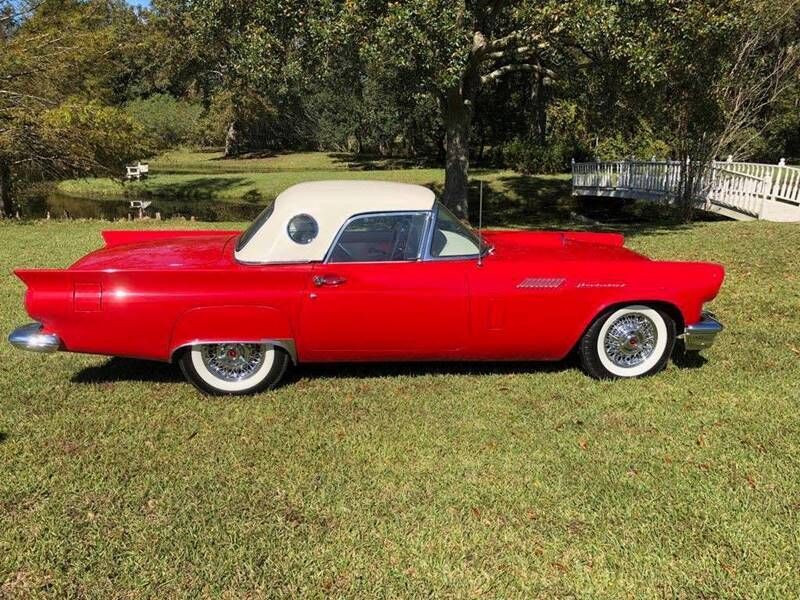The Good Splurge: Which Luxury Items to Buy and Where to Find Them
Published 8:00 am Wednesday, January 12, 2022

- ClassicCar.jpeg
Sometimes you want to spend a little more on something special, and sometimes you need to pump the brakes. And then there are those times when you have your eye on a luxury item, and all bets are off. Don’t be that person throwing cash out the window of a new mega yacht. With the help of a few local experts, we’ll tell you where to go to find the luxury goods that have the strongest return on investment.
Jewelry
Nothing depicts luxury quite like diamonds and gold, so we visited with two Acadiana jewelers for advice on the best choices for good investment.
“Gold is always worth the splurge,” says Katie Culbert, co-owner (with her mother) of Kiki boutiques in Lafayette and Baton Rouge. “We opened our shop 15 years ago, and the price of gold has increased so much that the pieces we were selling then have doubled in value. Solid 18k gold options from high-end jewelry designers like Pomellato and Temple St. Clair are incredibly made and withstand the test of time.”
Emma Hanks, vice president of operations at Allain’s Jewelry, agrees. “Splurging on jewelry of good metal quality, such as 10kt or 14kt gold, platinum or sterling silver, is always a good idea,” she says. “Colored stones and diamonds hold their value, as well,” she adds. “The cost of natural diamonds constantly increases over time; however, depending on your ‘splurge’ budget, we also offer lab grown diamonds that are more eco-friendly and cost efficient.”
Like aquiring anything beautiful, a financial investment in jewelry is also an emotional one. Culbert explains, “Fine jewelry is like fine art. We spend so much money on art for our homes, why wouldn’t we spend money on art for our bodies? Each piece can represent a moment in time, and that moment can be remembered and retold generation after generation.” The boutique owner goes on to share her own way of investing in the future. “Every year on my daughter’s birthday (she’s three now), I invest in a nice piece of jewelry for myself that I can then turn around and give to her on future birthdays.”
Hanks echoes that sentiment, saying, “Apart from jewelry being a good investment to splurge on monetarily, it will also last a lifetime and can be passed down to future generations. Any item that has been passed down from someone you love always holds sentimental value. Pieces that tend to be most sentimental are diamonds and colored stones, which can be reset from older pieces and made into new items, such as engagement rings, and pendants.”
When it comes to best bets, Culbert suggests an investment in a traditional, timeless gold piece. “For a real deal kind of splurge, we have this incredible heavy duty, solid 18k gold chain by Temple St. Clair,” she says. “It’s called the Jean D’Arc Necklace and modeled after the chainmail that one of history’s strongest women wore in battle. It’s heavy and beautiful and certainly timeless. A chunk of gold like this never goes out of style and always holds its value. It’s the ultimate investment piece.”
Vintage Designers
It might be surprising to know vintage designer handbags and accessories are one of the top luxury item investments in the world. They are in high demand and, depending on the brand, the popularity of the piece and the condition, these items can fetch unbelievable returns in resale. Chanel and Hermès have been known to retain their value better than others, but Louis Vuitton is a strong contender, as well. Specifically in handbags, the Chanel 2.55 double flap, the Hermès Birkin and the Louis Vuitton Bum Bag (a fanny pack) make the best investments insofar as holding their value.
Beyond a monetary return on investment, vintage handbags also support the shift toward sustainability and longevity in fashion. Moving away from cheap purchases that get tossed every season or two, investing in one key wardrobe item that will work across all occasions for many years is something to factor into your investment strategy. In some cases these purchases can even be handed down, as well.
Worried about getting duped by a fake designer handbag or accessory? The staff at the Louis Vuitton boutique inside Revival Antiques in Scott says that imposters are getting almost too good to spot. As much as they know about fakes (they show us tips, like how LV initials will rarely be cut off in the sewing of the bag), they still rely on authentication companies like ENTRUPY that scan bags with latest technology and algorithms to certify their authenticity. Renaissance Market in Lafayette, which has an impressive collection of vintage Chanel accessories, actually travels to Paris to buy and authenticate the pieces it carries.
Real Estate
You know what they say about land: they’re not making any more of it. Whether as a future development, a second home, a business venture, or a rental property, real estate has earned a reputation as a sound investment.
Latter & Blum realtor Lisa Duhe Lourd says, “If you can afford to purchase a second home in a vacation market, AirBnB and VRBO rentals can be very lucrative – especially if you purchase a home that needs some updating. Wise updates can not only build equity, but also give you an income stream and a great place to vacation!”
Not all markets are created equal, though, so Lourd suggests speaking with a realtor to understand each area better. “The real estate market is localized,” she explains. “What’s happening in Aspen is different from River Ranch, is different from Broussard, is different from New Iberia.” She continues, “While land is often a very long term investment, in Iberia parish residential rentals tend to do well. If purchased at the right price, you can generate income for years.”
According to Lourd, the emotional connection, especially to homes, can be a factor in purchasing decisions and in selling when the market is right. “It’s not only the largest purchase most people make, but it’s tied up with their hopes and dreams for the future, so it has to ‘feel right.’ For sellers, it can be difficult at closing because you’re letting go of the space attached to memories and life experiences. I’ve been in closings where everyone is teary-eyed; sellers, buyers, agents and the attorney,” she exclaims.
Lourd has some personal experience with this phenomenon. “My family is friends with the current owners of my grandparents’ old home, so it’s been wonderful to still have that connection, visiting their house and sharing old photos and memories,” she says.
Classic Cars
Buying a classic car can be a huge investment – and sometimes one with a good return. Many will buy a car that is in less-than-mint condition, then invest time and more money into refurbishing it. Others buy one in the best condition they can find, then treat it with kid gloves until the right buyer comes along.
Although the Classic Car of America defines a “classic” as one produced between 1915 and 1948, a vehicle in Louisiana is considered a classic if it’s at least 25 years old and has been valued at an excess of $10,000.
The price of classic cars has gone up in recent years, but initial cost isn’t the only factor to consider. To own one comes with more expense than most consider: ongoing maintenance, storage, trailering, restoration costs. Also consider the capital gains taxes incurred if you sell your refurbished vehicle for a profit.
Still, according to dealers like Bayou Classics and Customs in Parks, a classic vehicle can not only be a reasonable financial investment, but it also could be an investment in your own wellbeing, giving you a lifetime hobby or just the sheer joy of owning such a beauty.
Charitable Giving
When it comes to investments, sometimes charitable giving is overlooked. We regularly support our favorite charities, which may be for greater good, but many are beginning to realize the benefits outside of philanthropy.
There are myriad ways to get a return on a charitable gift (tax write-offs, estate planning implications, diverting non-income-generating assets into a trust), but investing in your community may be the best return of all. “Simply put: giving is good for business,” says Community Foundation of Acadiana CEO Raymond Hebert. “We live in a very generous region in which giving comes naturally. Neighbors give to neighbors, and strangers, and anyone they can help. While this is often done quietly and directly, frequently giving to the good nonprofit organizations, churches, schools, hospitals, and other public entities that serve our communities is a standard process. But generous support of these credible community organizations supports our friends and neighbors, and strengthens the economic makeup of our communities.”





